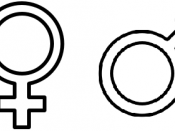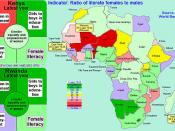Indeed, for tens of millions of women around the world the World Bank and IMF policies have meant deprivation, uncertainty, and a never-ending struggle to survive. These policies have entailed increases in violence against women due to higher levels of frustration and stress within the family that have been caused by reduced income and intense financial pressures - a common occurrence in countries from Poland to South Africa to the Philippines. For an increasing number of households, things are so bad that vulnerable members such as children and the elderly are being forced onto the streets . The effects of the mental stress of balancing multiple roles, the physical wear and tear of overwork, and the psychological impact of grinding poverty and worry about survival accumulate and damage women's health over the long term. Hence, women's own quality of life is damaged, as is their capacity for productive activity for ensuring the survival of their families and for contributing to the viability of their societies.
The limited support and attention by the two international organizations cannot continue, especially in the face of greater globalization. Transnational politics, like international trade, is borderless and cannot be ignored. The principles of equality and fairness must be endorsed by feminists worldwide, as do the international organizations that still need to put more pressure on governments to reform. Similarly, business entities cannot expect to conduct themselves ethically without giving consideration to women in transnational politics. Disregarding gender equality issues and exploitation of women will backfire on organizations and will give them bad publicity.
It is not enough for international organizations to urge governments to invest more in women. The two organizations discussed in this essay possess much greater powers and influence. To eliminate the existing gender inequalities and oppressions, these organizations must employ support programs for women, rewarded to governments that endorse equal gender policies, and provide educational and job opportunities for women. Likewise, IMF policies such as privatization and fiscal government spending cuts should come under closer scrutiny to prevent rising levels of unemployment among women, particularly in the third world countries. Many of the policies that have negative impact, such as the removal of subsidies on social services, must be revised and corrected with due attention to gender issues. Worth mentioning is the fact that these organizations may find it difficult to revise their priority on market based criteria to more emphasis on social policies. But such strong corrective actions are necessary.
More importantly, in order for gender equality to become a global phenomenon, feminists must adopt common or similar theories. Once there is less variance within the diverse theories and no division within feminists, then greater pressure can be applied on international organizations to monitor and implement proper policies. Lastly, these feminist organizations must learn how to work together with the international organizations in order to endorse equality in transnational politics.




